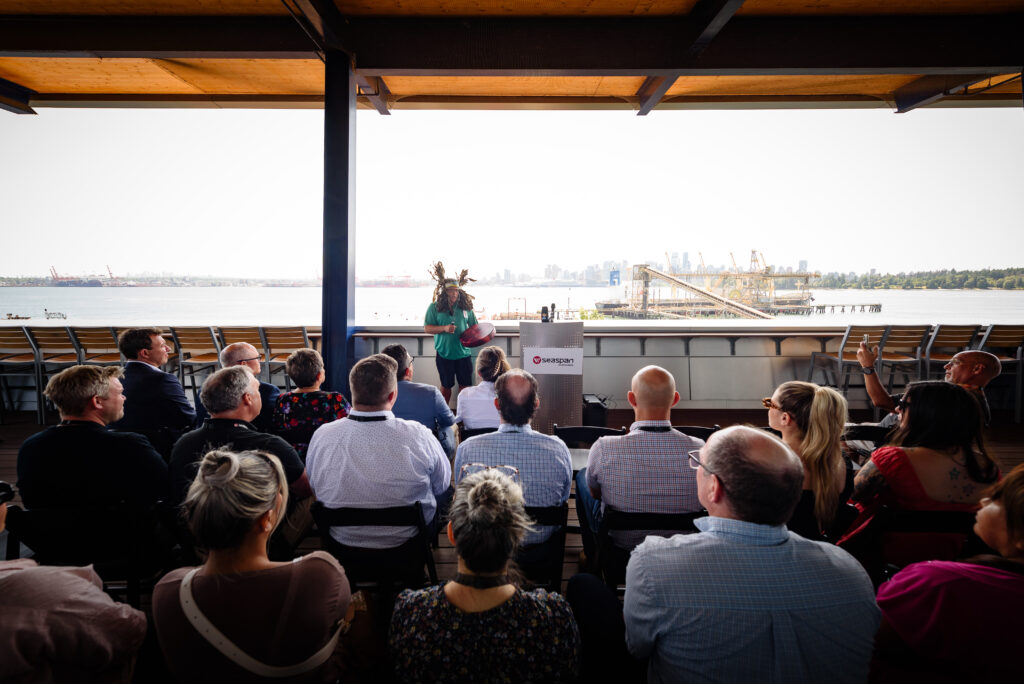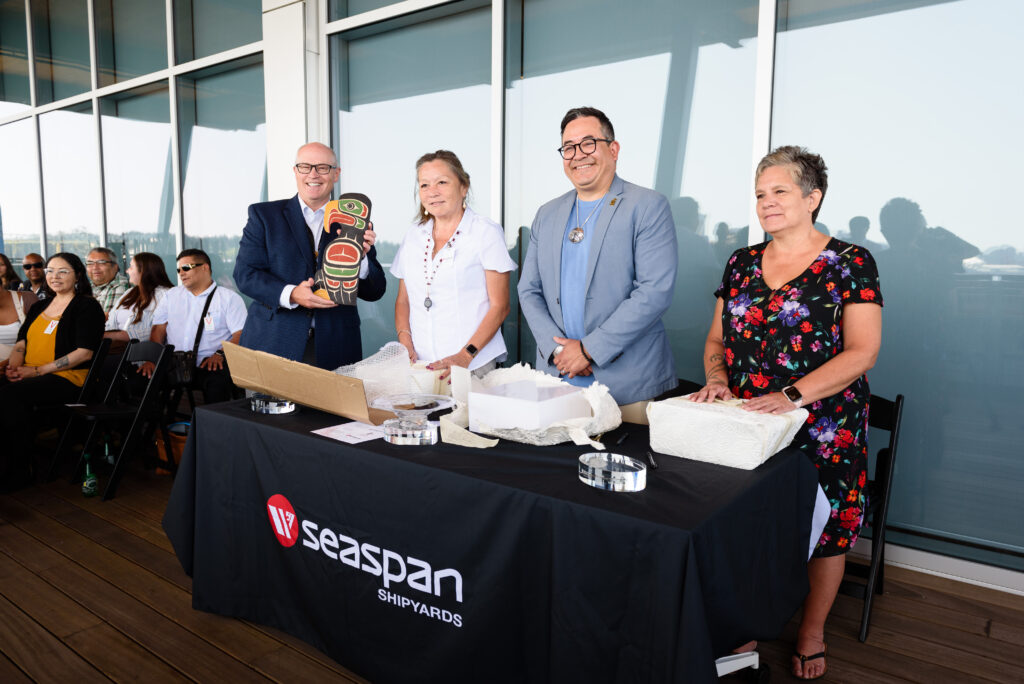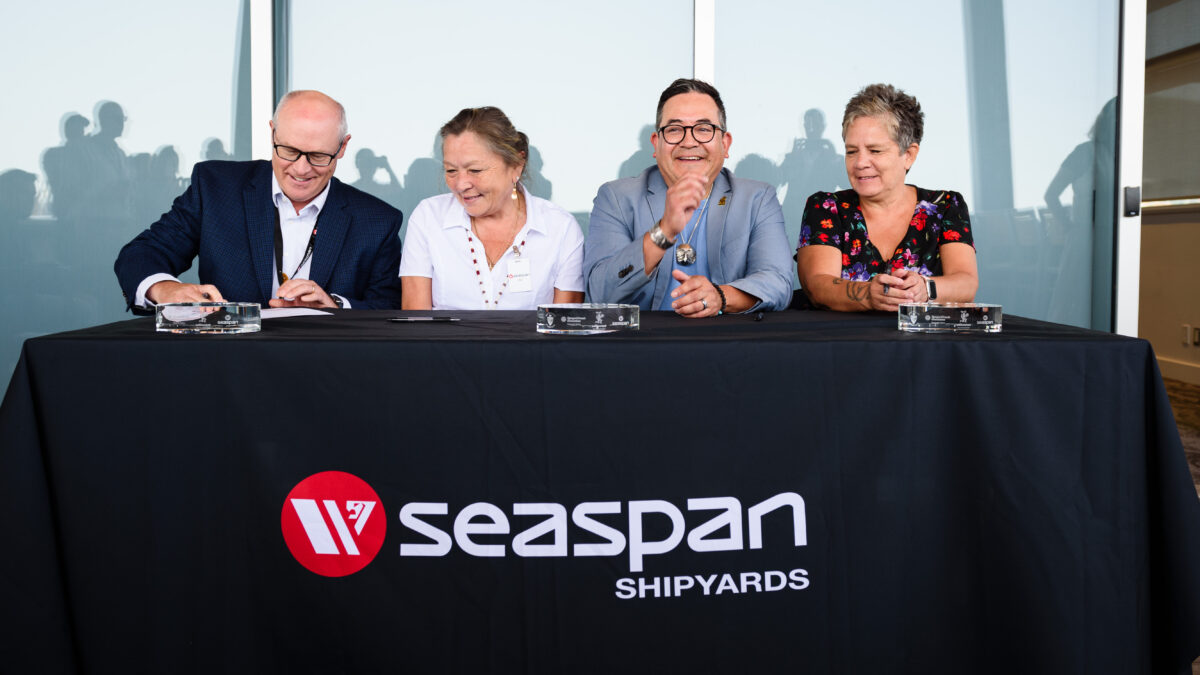In an exciting development for the Canadian marine industry, Seaspan Shipyards and the MST Education and Training Society have teamed up to introduce a comprehensive training program aimed at Indigenous youth. This initiative is a key component of Seaspan’s broader Indigenous strategy, launched on July 12, 2024, in North Vancouver, BC. The three-year program boasts a $3 million investment, with an additional two option years, each valued at $1 million.
The collaborative effort between the Musqueam, Squamish, and Tsleil-Waututh (MST) communities is designed to deliver workforce skill development programs tailored specifically for First Nations. This partnership ensures that community members can reap the benefits of job opportunities and economic activities within their traditional territories.

“Successful paths for our youth and our relationship with the waters have forever been a constant for the Musqueam people. We strive to provide innovative training that is comprised of Western ideals in collaboration with our traditional knowledge & values. Musqueam is very excited about this MST partnership with Seaspan that will inevitably open doors for our youth to gain not jobs, not employment, but careers in the marine industry,” said Chief yəχwyaχwələq Wayne Sparrow, Musqueam.
“The Marine Industry has long been part of the economic backbone of our territory, and this new education and training program will offer our young people the opportunity to pursue skilled careers in this expanding industry. We are grateful to now be a part of this growing initiative and look forward to our continued collaboration in creating more opportunities for our Nation’s youth,” added Sxwixwtn, Wilson Williams, Sḵwx̱wú7mesh Úxwumixw Spokesperson and Council Member.
“We are thrilled to know this education and training program offered by Seaspan Shipyards and the MST Education and Training Society will be available for Tsleil-Waututh Nation youth with an interest in pursuing careers in the marine industry. Investing in our next generations and providing them with capacity building and skills training is a priority for our Nation,” expressed Chief Jen Thomas, səlilwətaɬ (Tsleil-Waututh Nation).
Leveraging the existing education and training centers within MST communities, the program is accessible to Indigenous students both within and outside these communities. The program emphasizes the importance of incorporating the unique languages and cultures of these communities, which is vital for the holistic development and success of First Nation students. The initiative aims to build upon the existing educational frameworks to maximize opportunities for the participants.

“Investments in skills development within the marine industry, especially for Indigenous youth, highlight the economic significance of our oceans. Collaborations like Seaspan Shipyards’ partnership with the MST Education and Training Society not only equip individuals with maritime skills but also boost local economies. This initiative strengthens both the workforce and our maritime sector, securing the prosperity of an industry that is pivotal to Canada’s economy,” commented Francois-Philippe Champagne, Minister of Innovation, Science and Industry of Canada.
The program includes several key components:
1. Career Exploration and Career Path Mapping: This module focuses on preparing working-age youth, as well as unemployed and underemployed individuals, for entry into the marine industry through tailored training sessions.
2. Trades Apprentice Course: In coordination with accredited training institutions in British Columbia, this course aims to facilitate trades apprenticeship opportunities.
3. Visual Promotion Media: A series of videos will be produced to highlight and promote career paths in the marine industry.
4. Essential Skills Training: This aspect of the program is dedicated to providing foundational occupational skills, thereby better preparing students for trades courses.
5. Certificate Programs: Enrolling students in industry-recognized certificate programs, such as first aid and hazardous materials handling, to equip new workers with essential entry-level skills.
6. Introduction to Trades and Shipbuilding Industry Training Programs: This component helps participants develop core skills necessary for success in apprenticeship programs, guiding their career paths in the shipbuilding industry.
This significant investment by Seaspan Shipyards, in collaboration with the MST Education and Training Society, underscores their commitment to the National Shipbuilding Strategy’s Value Proposition. By investing in the education and training of Indigenous youth, this program not only fosters economic growth within Indigenous communities but also strengthens the future workforce of Canada’s marine industry.
“At Seaspan, we are continuously working toward creating meaningful partnerships with local Indigenous communities to drive reconciliation forward. The creation of the MST Education and Training Program is an extension of our ongoing relationships and collaboration with the Squamish, Tsleil-Waututh, and Musqueam Nations. We are thrilled to launch this impactful program that connects Indigenous youth with exciting marine career opportunities. It’s a major achievement, and we are honoured to play a role in it,” said John McCarthy, CEO, Seaspan Shipyards.

